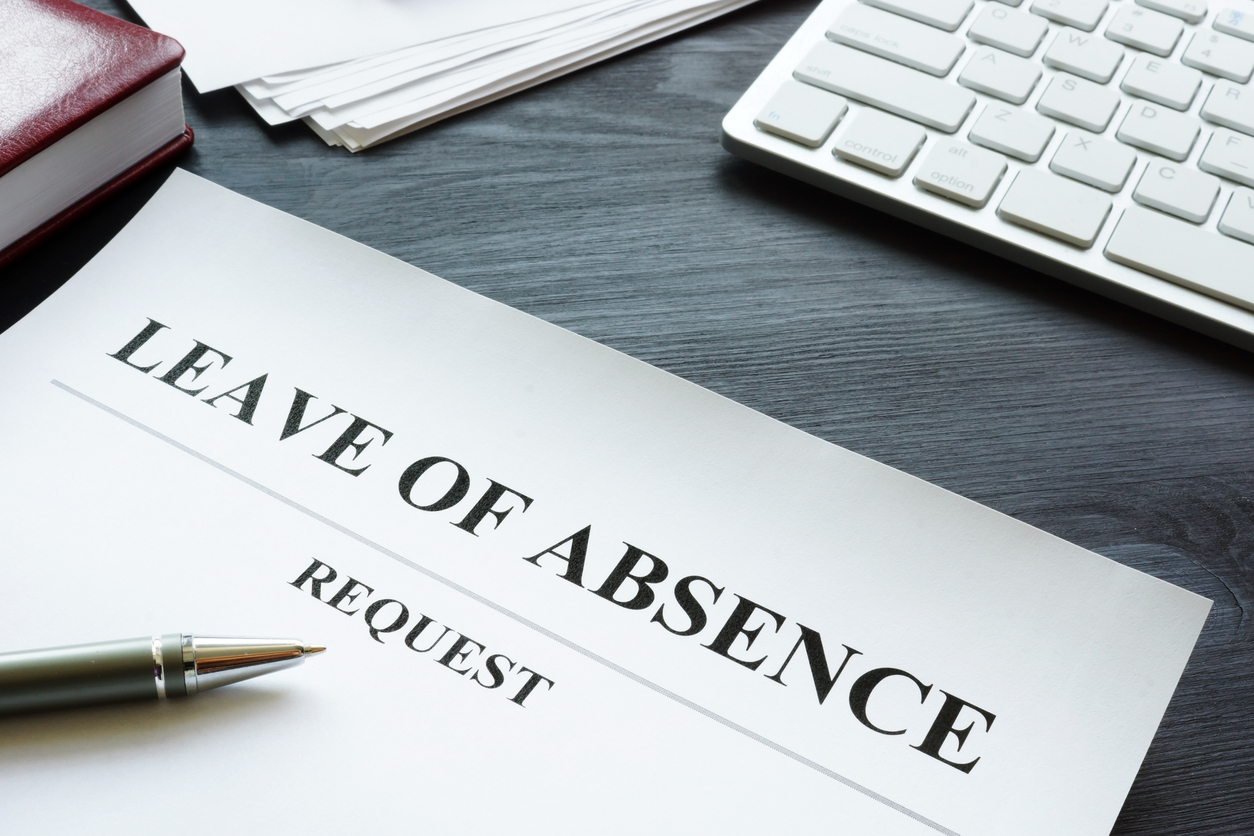
Last year, DMGS looked at “Hill Day Strategies” and provided lobbying tips on how to advocate effectively. This year, traditional lobbying and advocacy have changed due to the spread of COVID-19. In the past few months, in-person meetings with lawmakers and their staff members have dwindled, while digital meetings, emails, and conference calls have skyrocketed. For example, last year’s conferences or Hill Days have now transitioned into Zoom or Skype meetings.
However, even though some lawmakers have been working remotely or capitol buildings being closed to the public, lobbying has not ceased. Just because legislators have shut down the Capitol or lawmakers are not there does not mean that organizations and individuals cannot effectively plan to lobby. Here are DMGS’ lobbying tips to take into account, particularly during the pandemic.
How has COVID-19 Impacted Lobbying?
Lobbying has shifted as states have enacted stay-at-home orders, debates have ensued over which businesses were deemed essential or not, and which employment sectors COVID has affected. In Pennsylvania, lobbyists were busier than ever as organizations began looking for assistance in navigating the government during the pandemic. Instead of sitting in on committee meetings or hearings and chatting with lawmakers in the halls of the capitol, lobbyists are doing their jobs virtually.
In California, COVID-19 has caused a shift in priorities and change in the legislative calendar. Lobbyists are on the phone for 8-10 hours a day, and priorities have shifted from issues like homelessness and housing to the definition of an independent contractor and whether they are eligible for pandemic unemployment benefits.
In New Jersey, one report noted that lobbyists have had to balance their interactions with overworked lawmakers and staff. Lobbyists have also shifted from communicating in the hall with lawmakers or staff members between meetings or before hearings to through emails, texting, and phone calls.
What is a “Hill Day” or “Lobby Day”?
Traditionally, “Hill Day” refers to a day organized for advocates from an organization to visit state capitols or Washington, D.C., to meet with lawmakers, staff, or other key decision-makers. With the current pandemic, many groups and organizations are shifting to virtual lobby days.
Non-profits, business associations, advocacy groups, local government associations, trade groups, and others each have their reasons to organize virtually or travel to their state Capitol or D.C. A Hill Day, virtual or in-person, can be a vital tool to maintain relationships with a state government or the federal government.
Where Do We Start?
Begin by identifying the issue area most relevant to your organization. The state or federal government in some way affects your mission. Your leadership must determine the goal of your virtual Hill Day.
Can you educate lawmakers on the effects of a piece of legislation? Can you explain to lawmakers how COVID-19 is affecting you? Will an amendment to an existing bill help or harm your organization? Do you have a legislative proposal that you would like to see introduced in the legislature? Is a grant program that funds your organization’s work at risk of being eliminated? Is there funding available from the CARES Act that could help your organization?
These are all critical questions that you must ask and answer when determining your objectives.
We Have Our Goals – What Next?
For example, your organization would benefit from the legislature adding an amendment to a piece of legislation. Build out your list of targeted lawmakers. These lawmakers will have something in common – they are from a state or region, they sit on a committee of jurisdiction, or they represent districts that are relevant to your organization. You should find the commonality that best supports your amendment.
Once you have identified your target lawmakers, you should look internally at your organization to find your best advocates. This is a crucial step; these people will be directly carrying your organization’s message to lawmakers and staff. Again, the key here is finding common bonds, whenever possible, between your advocates and your targeted lawmakers. Often it is best to find a constituent from a lawmaker’s district or someone who has a personal connection with the district or the member. This is not a requirement, but it certainly lends a more powerful voice to your message. Once you have built your target list and have a sense of who your advocates will be it is time to begin planning the organization of your Hill Day.
Scheduling Virtual Meetings
Typically, the organization and the scheduling of in-person meetings would take place. However, that may not be possible due to the pandemic. Now, scheduling involves virtual meetings through platforms such as Zoom or Skype.
Timing is also essential. Are your state lawmakers in session? You can check ahead of time to find out when your lawmakers are either at the Capitol or working remotely during their session. Legislatures in different states have session information available on their websites. For example, you can find Ohio’s session schedule here, or Pennsylvania’s session schedule here.
Some states have called for special legislative sessions that lawmakers had not scheduled initially. It is crucial to monitor your state’s legislative session calendars, as well as the federal House and Senate calendars, when determining when to schedule your lobby day. However, virtual meetings allow some flexibility here.
With a date selected, about six weeks to a month out, you should begin reaching out to the staff of your targeted lawmakers to schedule your virtual meetings. If your capitol is not open to visitors, or the lawmaker you are reaching out to is not meeting in-person at the time, make sure you have all of the call-in information available and ready to send out for when you hear back.
You may be able to schedule a virtual meeting with your lawmaker, but this will not always be the case. In many cases, you will likely initially meet and speak with staff rather than the member. Lawmakers at both the federal and state levels rely heavily on their staff for policy advice and information because they cannot be in each meeting personally, nor are lawmakers experts in every policy area. Legislative staff can be an essential ally to you and your organization, and you should treat these meetings as if you are meeting with the actual legislator. Do not think your time has been wasted if you do not get a full meeting with a lawmaker.
Logistics for your Advocates & How to Organize a Virtual Call

For your Hill Day to be a success, you should plan as much as possible for your advocates. The less they must worry about the coordination of their trip or virtual experience, the more time they can spend focused on your messaging, and the more effective they can be.
If you are organizing a Zoom or Skype call with your lawmaker or staff, make sure everyone has all the call-in information ahead of time, and include everyone on the invite list. You should also take into consideration the issue of time zones – if someone is participating from Texas in a virtual call with a congressional staffer in D.C., you need to make sure zone differences are accounted for when scheduling.
Also remember – technology can sometimes fail or be challenging to deal with. In the event a server is down or there are technical difficulties with a video call or conference, have a back-up plan in mind. It is crucial to have a back-up, standard audio conference call line available that can be instantly sent out to all participants. If you have advocates planning to call in, you may want to set aside some time in the days leading up to your call to make sure they fully understand how to use the program.
Most importantly – if you are on a video call or conference call and you are not the one talking, make sure participants mute microphones to eliminate background noise.
Next – even if you are not physically at the Capitol, you should still dress professionally. Dress as if you were in the Capitol, but maybe you can customize your attire with gym shorts or sweatpants since that will not appear on screen!
What if I Am Allowed Inside the Capitol?
Make sure to call ahead if you are allowed inside your state capitol, particularly if you are not planning a Hill Day and want to talk to a lawmaker or their staff.
Make sure you are aware of the current restrictions if you are at the Capitol in D.C. or your own state capitol. Pre-COVID, it may have been easy for advocates and lobbyists to stop by lawmakers’ offices unannounced, whether to talk to a staff member or drop off information. Now, most offices are closed to visitors to prevent the spread of COVID-19. As such, make sure to call ahead and know what precautions each office is taking. The capitol itself may be open to visitors, but individual lawmakers may choose to close their offices to visitors.
Advocate Feedback & Intelligence Gathering
In addition to providing your advocates with the opportunity to share your message with lawmakers, Hill Days can also be an essential source of intelligence for your organization.
It is crucial that your advocates not only speak but also listen in their meetings, virtual or not, with lawmakers and staff. These meetings can often guide a lawmaker’s position or thinking on an issue, perhaps giving your organization insight it had previously lacked.
Providing your advocates with the ability to log notes from their meeting, whether through an electronic or paper form, is the best way to collect this vital information.
Post-Hill Day Press Releases & Social Media Posts
Sharing the success of your Hill Day, virtual or not, via social media and a press release gives your organization another chance at sharing your message and demonstrate that you are an active and educated participant in government.
Thank You Notes & Emails
The best time to send Thank You Notes to legislators and staff is within a week of your Hill Day. Not only is it polite to send a Thank You, but it also reminds them of your issue, and will jar them to act on any follow-up that came from your meeting. Thank You emails are recommended, particularly during the pandemic. With lawmakers and their staff often working remotely, the best way to reach them during this time is via email.
Wrap-up and Analysis
Once your meetings have concluded for the day, it is helpful to regroup with an internal virtual call to give everyone a chance to share any particularly interesting or valuable information they learned from their meetings. Before you know it, it will be time to begin planning for your next one – hopefully, the next one will be post-pandemic!
Duane Morris Government Strategies is here to help you succeed at every step of this process. For more information, please contact us at emartins@dmgs.com or 609-577-3687.
Latest News
In this episode of the Back in Session podcast, hosts Ryan Stevens and Ryan DeMara sit down with Terra McClelland, President of the State Government Affairs Council (SGAC) and Vice President of Government and External [...]
Photo credit: iStock.com/Pavel Muravev Following the 2022 midterm elections, Democrats hold veto-proof majorities in both legislative chambers in nine states, compared to 18 for Republicans. In a state’s checks and balances system, [...]
Photo credit: iStock.com/Worawut Prasuwan Associations exist in each state to promote various trades, industries, businesses, and professions. There are more than 25,000 national associations and more than 65,000 local, state, or regional associations in the [...]
Photo credit: iStock.com/designer491 Various kinds of leave exist for workers, such as family leave, sick leave, parental leave, and vacation leave. In addition to these more traditional types of leave, after the Covid-19 pandemic, state [...]






Stay In Touch